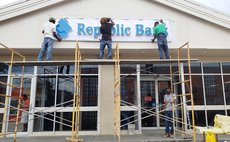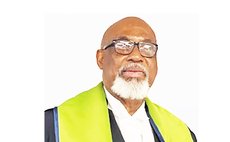Astaphan Responds to The Group's Final Report

The clock is ticking; one after the other, each day dawns and every night closes, but electoral reform continues to evade the Nature Isle.
There are four months left before the next general election, if Prime Minister Roosevelt Skerrit dissolves parliament in December 2019; there are nine months left before the constitutionally due date, May 2020, for general elections. The clock ticks, the days go by.
But as an article dated 21 August 2019 by Anthony Astaphan, the Dominica Labour Party's government major spokesman and lawyer illustrates, the main road blocks to electoral reform remain unresolved.
Responding to The Group's final report in an article entitled: "Response to the Report on the Electoral Reform Effort by The Group Comprising Leaders of Church, Business and Civil Society (The Report)", published by the Vibes news website, Astaphan maintains that the advocates for electoral reform are dishonest and partisan.
"Simply put, the speculation, misinformation and falsehoods in the report is unquestionably astonishing," Astaphan wrote. "Simply put, the authors of this report could with any degree of honesty continue to ignore and/or in many cases misstate the facts and fundamental principles of election law simply to deceive the public and observers. Also, there are many express misrepresentations of fact and law in several paragraphs of the report.
"Further, this group has provided not a shred of evidence to substantiate its allegations. Undaunted it has sprayed the seed of mischief by suggesting at least implicitly there is some electoral devil hidden somewhere in the dark, and that unless its farfetched and baseless demands are met, Dominica will plunge into utter chaos. This stripped to its bare essence is naked politics".
In its final report dated 8th August 209, The Group suggests that the main roadblock to electoral reform is the perception that the electoral laws have to be amended to allow the Electoral Commission to issue identification cards and cleanse the voters list
"The Group" is made up of representatives from the Dominica Christian Council, The Dominica Business Forum Inc., The Water Front and Allied Workers Union, The Dominica Bar Association, The Dominica Association Evangelical Churches, and The Dominica Public Service Union.
It first met seven months ago, on 31st January 2019, to find "ways for Dominica to achieve the necessary electoral reform before the next general election".
"The Group is of the opinion that the apparent impasse on the road to electoral reform is related, in part, to the perception by the Electoral Commission that the Chief Elections Officer does not possess the legislative authority to issue identification cards containing the prescribed particulars so as to ensure that an elector does not vote more than once in the same general election," the report states.
But Astaphan disagrees.
"The group argues that the existing law provides for ID card. This is 1% accurate in that section 19 of the Registration of Electors Act mentions ID card. But the argument is 99% misleading," wrote Astaphan. "There is no provision in the existing law making an ID card a mandatory requirement for registration or voting; There is no provision in the existing law whether under the existing section 25 of the Registration of Electors Act or otherwise requiring the Chief to ask for or an applicant or elector to provide photographs, biometrics data, or for a person to apply for an ID card on registration or at any other time."
On the issue of the need for the cleansing of the voters list, which The Group suggests is bloated and must be cleansed, Astaphan argues:
"There has been and is no record or evidence of fraudulent voting at any election in Dominica" and "There is no evidence to support the criticisms of the register. Nevertheless, the observers' findings that the voters' list did not materially affect the credibility and transparency of the election process and of the results, and that it was (and remains accurate) and appropriate in the eyes of existing legislation are important. They put to rest the suggestion that the register is susceptible to fraud or unfairness, and therefore needs to be "sanitized."
Astaphan also suggests that the parliament of Dominica has the authority to make laws to effect elections and its only restraint is that parliament consults with the Electoral Commission. And that it has done, Astaphan said.
"The Independence Constitution of 1978 vests the authority in the Parliament to make, amend or repeal any law concerning the registration of electors and elections. The sole fetter imposed by section 51 is the obligation to consult the Chief Elections Officer and Commission. It is therefore for the Parliament, subject to the duty to consult, and there was consultation, to decide on the appropriate law required in the public interest for registration and elections," Astaphan wrote.
"It is therefore nothing short of constitutional heresy for the group to suggest, even implicitly, that the Parliament has no rights or say in these matters".
The Group and other opposition forces have suggested that electoral reform is the responsibility of the independent Electoral Commission.
The Dominica Labour Party Cabinet and other parties as well, should not be directly involved in making laws and regulations to cunduct elections in which that party contests, the opposition has argued.




